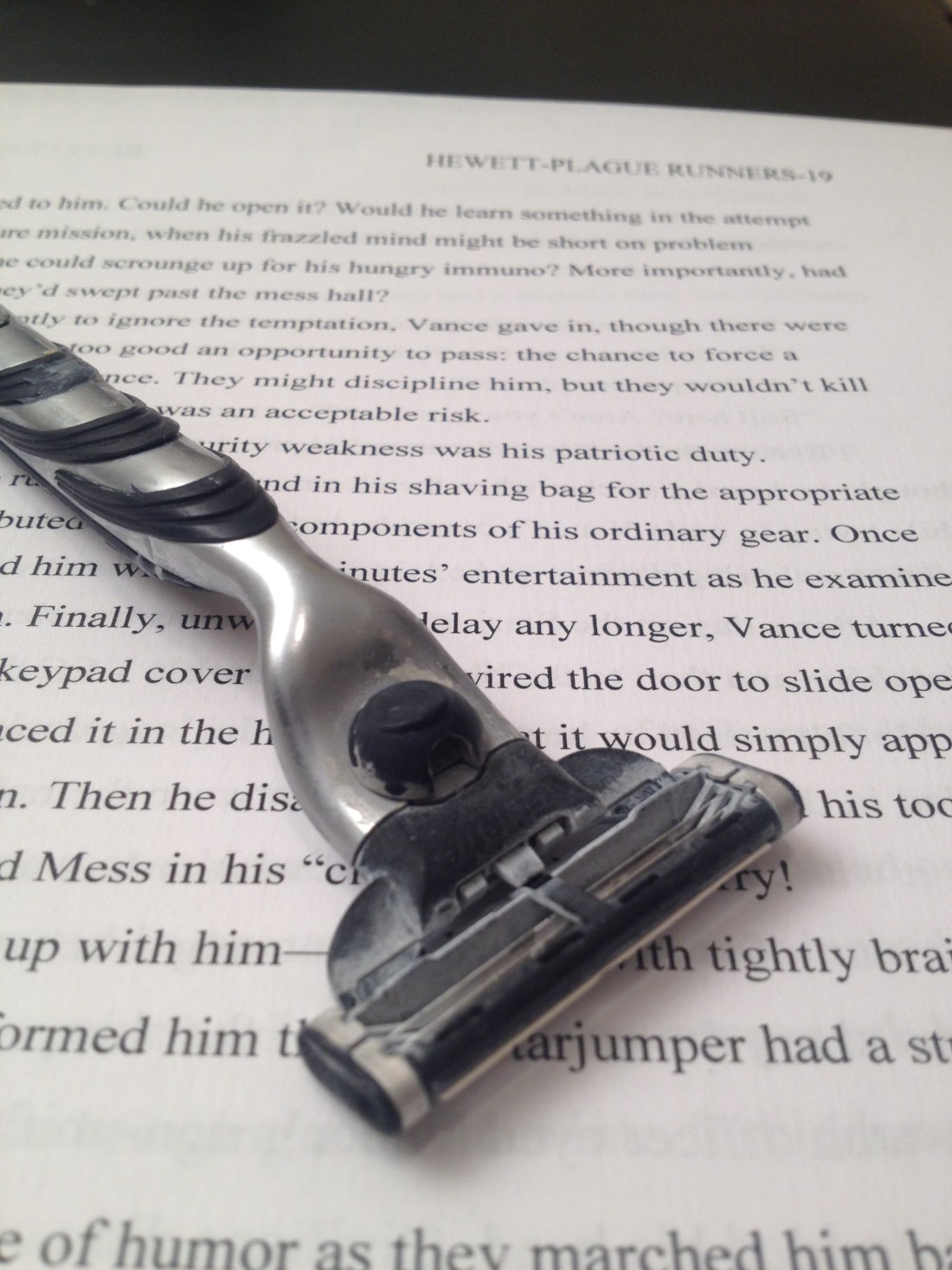“We edit to let the fire show through the smoke.”
—Arthur Plotnik

Last week, I started building a metaphor between writing and shaving. In my example metaphor, I had irregular hair patterns after knee surgery that kept drawing the wrong sort of attention in public.
In fiction, anything that calls undue attention to itself is a problem. The secret to a captivating story isn’t just artistic words and phrases, but the camaraderie that exists between them. Every time a reader comes across a misfit word—even a beautiful one—their suspension of disbelief risks being damaged. I tried to read The Fellowship of the Rings in second grade, but I spent more time in the dictionary than in the story. Granted, I probably should have been reading something else at that age, but . . .
One priority for fantasy and science fiction authors is transporting us from our reality into an alternate reality. Words that break that magic, by being inauthentic, confusing, or awkward, should be cut. Even a gentle reader will become a critic if they get bumped from a story one too many times.
Here are a few issues I see often in the manuscripts I read:
Overly Dramatic Adjectives
Overt attributions of emotion/drama (e.g. merciless army, breathtaking vista, furious opponent) should not be used in place of more descriptive narrative. A reader should feel these things through the actions taken by characters, rather than by getting beaten over the head with the word itself.
Example: “The merciless army advanced upon our breathtaking city.”
A reader can tell if an army is “merciless” independent of the word if the author has already shown (1) the body count, (2) a city in ruins, and (3) a parent so desperate to protect her daughter as to consider killing the child in advance of the army’s arrival. All of these things do a better job of casting an invading army as “merciless” than the word itself.
Smart words
Sesquipedalian. Pontificate. Prognisticate. It’s fun to show people how smart you are, but words like these score way more points on a Scrabble board than they do in a manuscript. There are exceptions—a character that uses big words to annoy your protagonist (and readers), perhaps?—but generally, if it isn’t an everyday sort of word, think carefully about using it.
Example: “As he ran, Vance cursed himself for not being more perspicacious.”
One of my beta readers marked this word out in bold red strokes and replaced it with the more pedestrian word “clever.” This alters the meaning slightly, but works better for commercial fiction.
Awkward Expressions
These are expressions that get in the way of the story. They often stem from an author’s desire to be poetic, or say things in a new way, but they’re more trouble than they’re worth to the average reader. If the average reader has to spend too much time decoding a book of idiosyncratic (unusual) expressions they’ll get irritated. (And editors have an even lower tolerance for awkwardness.) It’s okay to use conventional language.
Example: “The stillness halted his feet with fear.”
This is an awkward way to say, “He stopped walking when he noticed the eerie quiet,” or “He halted, suddenly apprehensive in the unnatural silence.” Feet don’t feel fear and stillness won’t halt them . . .
🙂
Obviously there’s more to revising than just shaving out these little indiscretions, but if you find beta readers, agents, and editors looking at your manuscript funny, it might be time to go hunting for dramatic adjectives, smart words, and awkward expressions. And if you are getting weird looks, pat yourself on the back. It’s a sign of progress. It means you have a knee worth shaving.
One thought on “Writing: Shaving Pains”